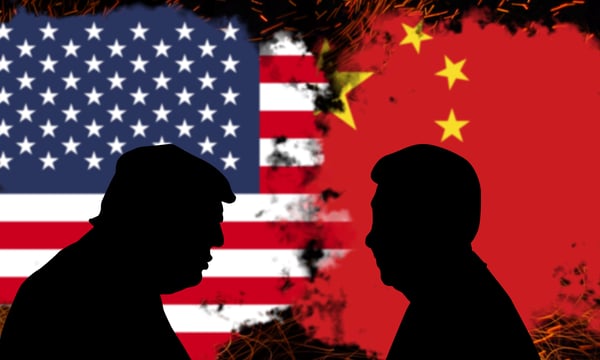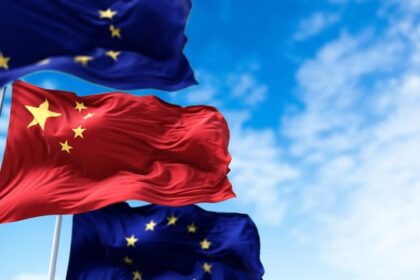The relationship with China that the Biden administration built was seen as a competitive one: both parties sought to avoid conflict, encouraged cooperation where it was needed, and emphasized communication to maintain the relationship. That’s why Secretary of State Antony Blinken met frequently with Chinese State Councilor and Foreign Minister Wang Yi. Communication is vital for deterrence, and both China and the U.S. took a textbook approach. Climate change encouraged the two superpowers to pursue cooperation.
Under the Trump administration, this framework has collapsed. Climate change is no longer an area of cooperation. Tariffs are now the main point of dialogue, and certainly remain a major headache for China. When the international environment deteriorates, China tends to look to strengthen ties with Russia and other partner states, while building closer relationships with its neighbors. Beijing has already taken steps in this direction, holding the Central Conference on Work Related to Neighboring Countries in April 2025.
Even before Trump returned to power, it was clear that he would make the U.S. trade deficit with China an issue. It was also clear that his foreign policy and national security team would take a hardline stance on China in terms of economic security. Concerned about food and energy security, China has worked to insulate itself from American influence, finding alternative soybean suppliers and stepping up imports of Iranian crude oil. Just as many developed nations have reduced their economic reliance on China, China itself is working to reduce its economic dependence on the U.S.
Right now, China’s economic policy is focused on building an economic structure centered on domestic demand. This differs sharply from the “Reform and Opening Up” period, when there was a focus on foreign trade. As a result, the pressure from U.S. tariffs gives China an opportunity to double down on an inwardly focused economic model. There are, of course, sectors where trade with the U.S. remains essential. However, for those sectors where it is not vital, we can expect China to pursue a shift to domestic production or to diversify its trade partners in ASEAN and Central Asia.
Faced with harsh tariffs, China has limited means to respond. Even if wanted to buy American, Beijing’s shift towards a focus on domestic demand makes it less likely to be interested in boosting imports. Even with aircraft, to take one example, China is already stepping up its own production for domestic flights, making large-scale imports from the U.S. undesirable. Likewise, economic security restrictions make it extremely difficult for Chinese companies to invest in America, even if those companies wanted to contribute to job creation in the U.S. As such, one of the only options remaining for China is to impose its own retaliatory tariffs. Another avenue is to use rare earth metals and lithium-ion batteries as leverage, with the former being essential for the automotive industry and a major weapon in tariff negotiations.
China has meanwhile sought to portray the U.S. to the rest of the world – and the Global South in particular – as a disruptor of the free trade system. At the same time, it has worked to rally allies of the U.S. that have been hit with high tariffs, calling on them to work with China to confront Washington over tariffs.
Beijing has identified many elements within the Trump administration’s policies that it thinks are to its advantage. Tariffs are one example, but there is also the effective dismantling of USAID, the elimination of funding for Voice of America (VOA) and Radio Free Asia (RFA), and more. Many USAID projects have been suspended, and there have been significant repercussions and criticism from countries in the Pacific and Africa. Although China is also dealing with many economic issues of its own and cannot provide the same level of funding to these countries as it did in the late 2010s, this still represents an opportunity. The decline of VOA is particularly advantageous to China, which has long tried to expand its discourse power on the global stage. RFA once actively reported on human rights issues in China’s Xinjiang Uyghur Autonomous Region. It goes without saying that China welcomes the suspension of these activities. In reality, the de facto dismantling of USAID appears to affect not only developing countries but also the state of global discourse. There are growing concerns that this will lead to a breakdown in the mechanisms that fact-check disinformation.
Right now, China appears to be in the process of assessing the Trump administration’s policies, looking for potential openings. The rest of the world will watch with interest to see if Washington can respond nimbly once China begins to pursue its own policies, exploiting any weaknesses in the U.S. position.
KAWASHIMA Shin is a professor at the University of Tokyo.






